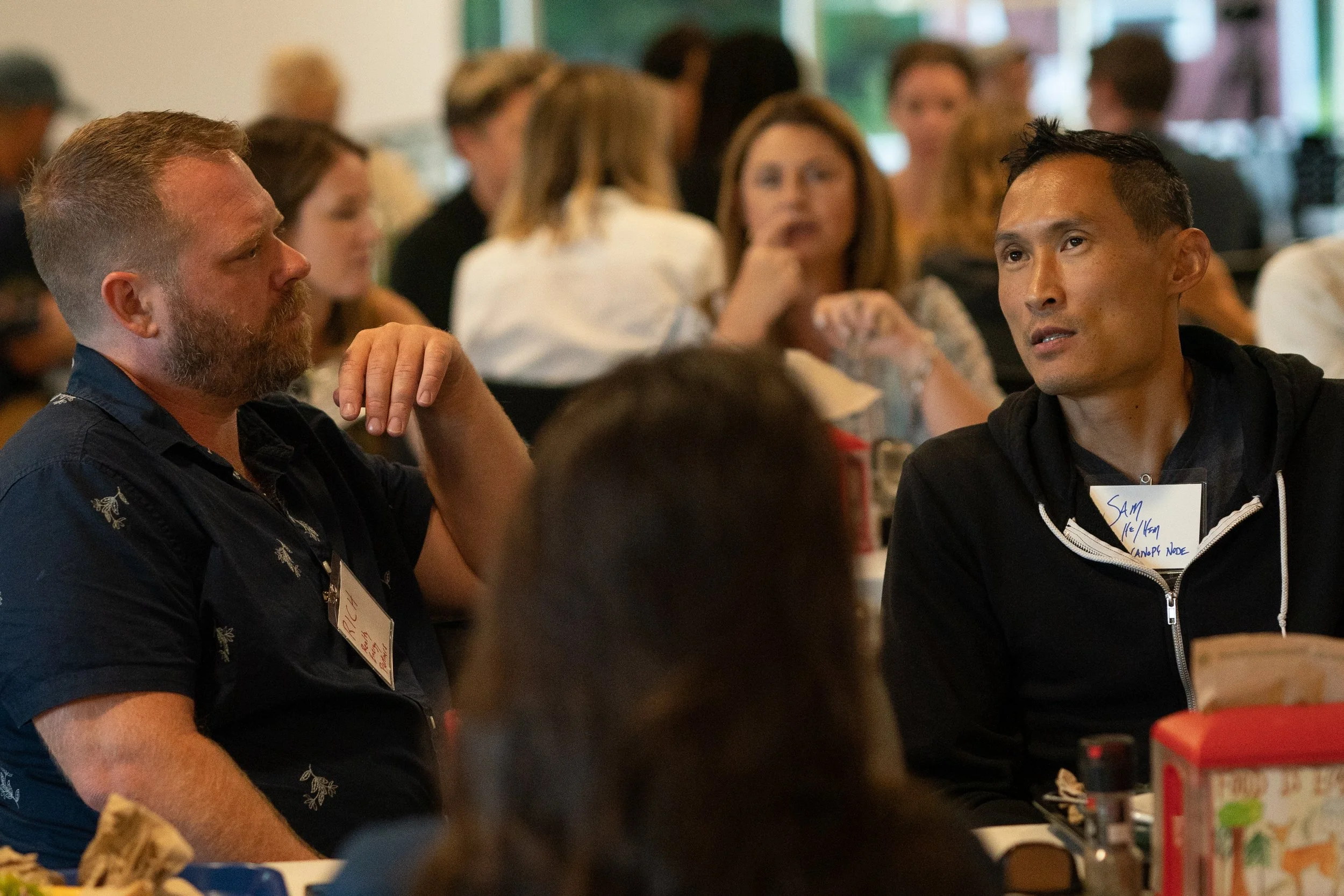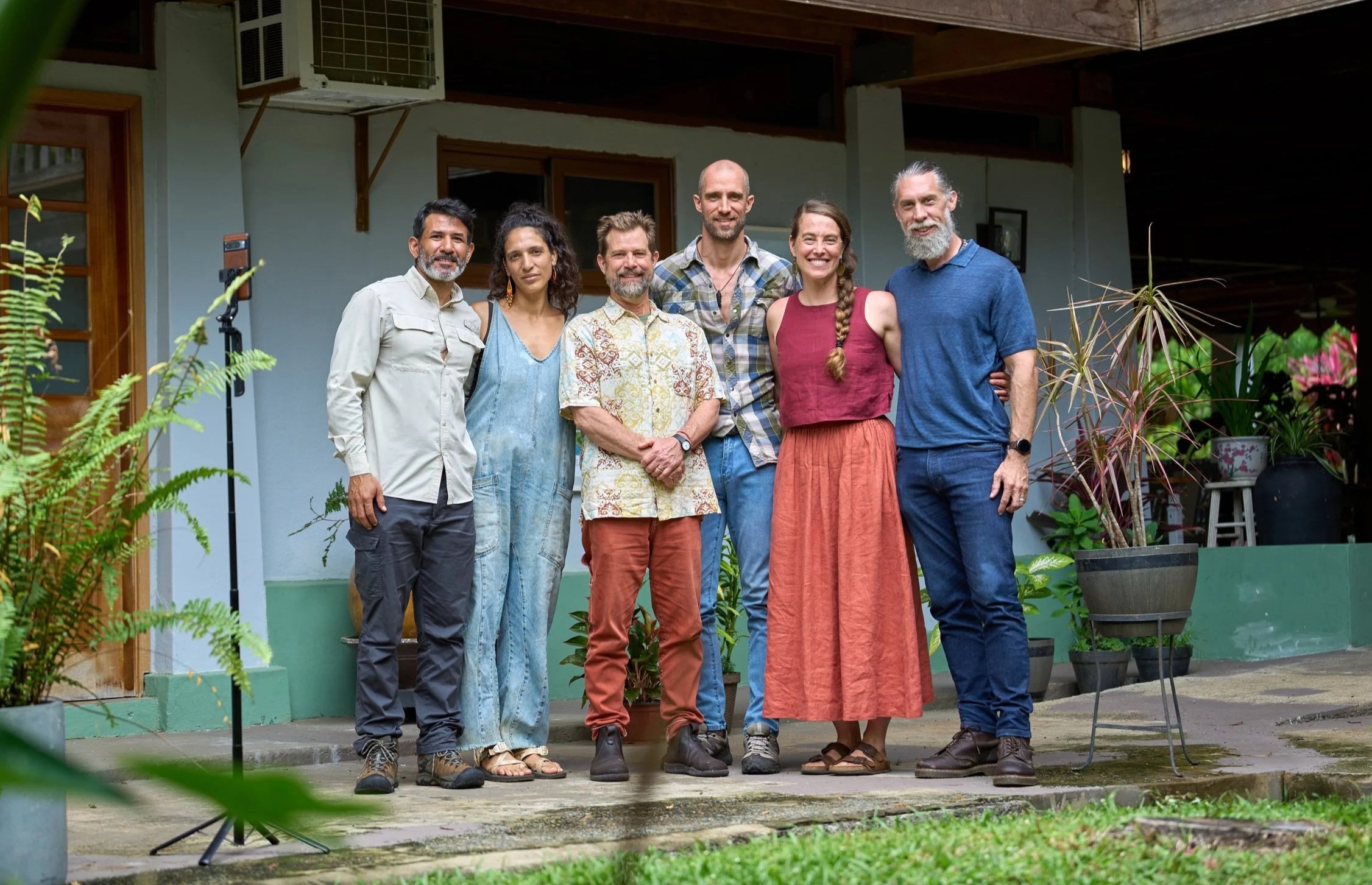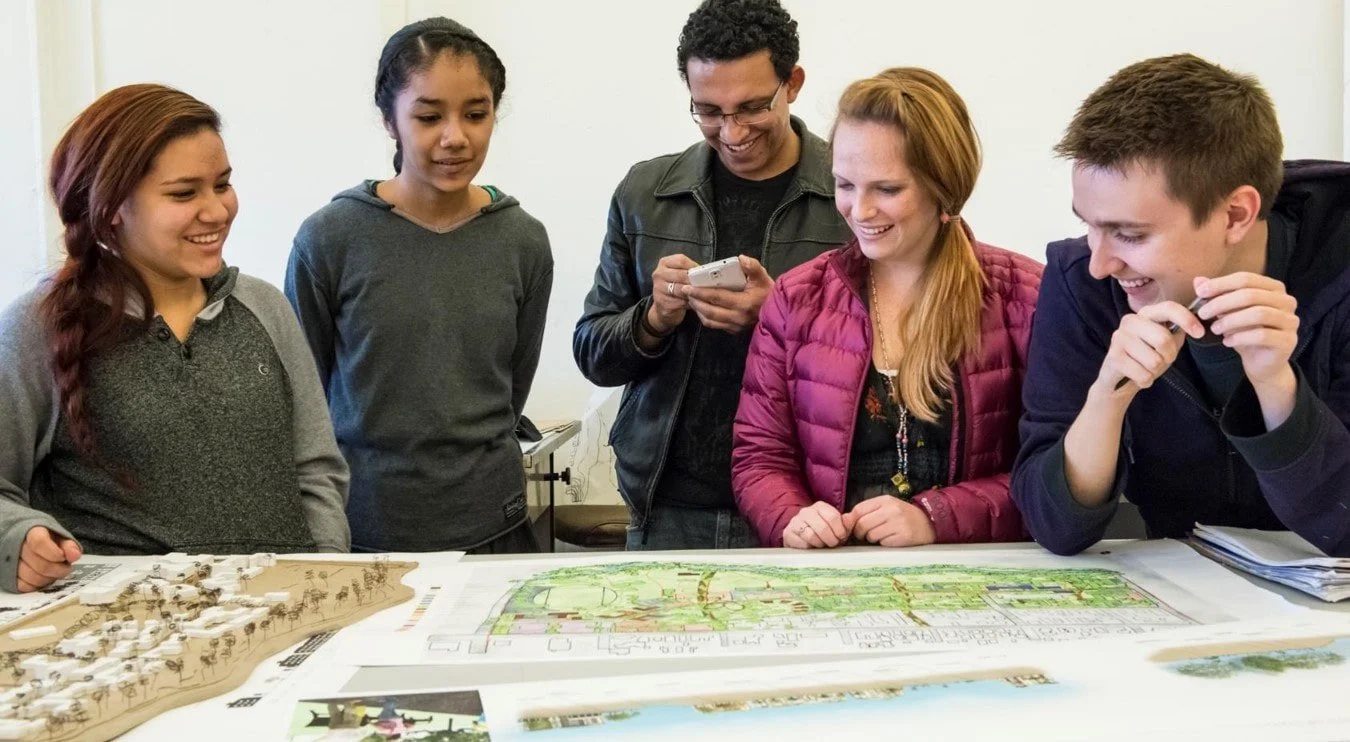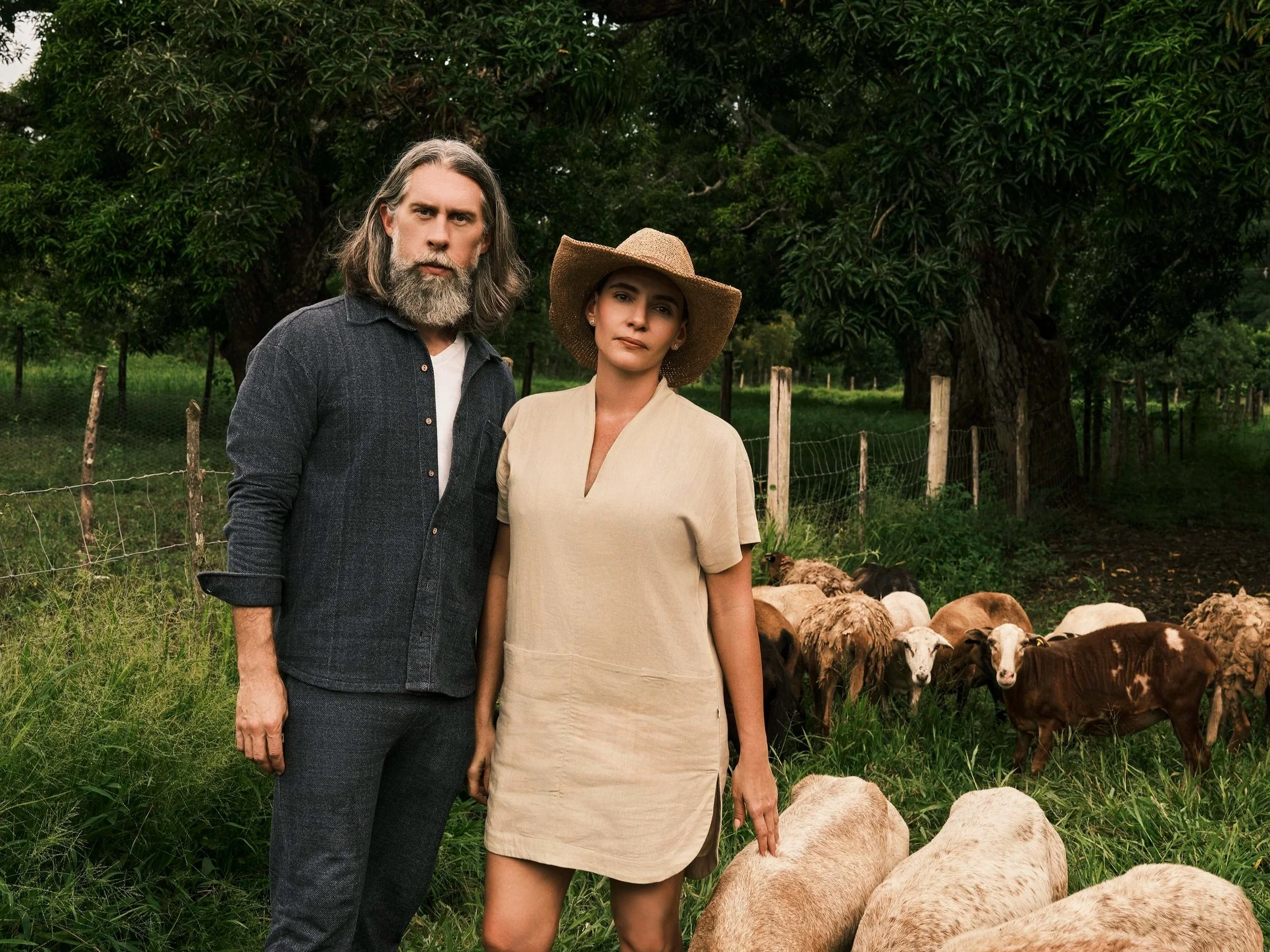Reflections on the First-Ever Regenerative Real Estate Gathering at River Bend Farm
This August, more than 40 professionals from across the country met at River Bend Farm in Saco, Maine, for the first-ever Regenerative Real Estate Gathering—a four-day event focused on rethinking the role of real estate in community wellbeing, ecological health, and long-term stewardship.
Attendees circled up to introduce themselves and add an item from home to the altar. Photo: Jenny Sherman
For many attendees, this was their first introduction to regenerative real estate: an approach that looks beyond transactions and buildings to consider how homes, developments, and communities can contribute to healthier ecosystems and stronger social fabric. The goal of the gathering was simple: bring together people who are curious about this work and create a space to learn, reflect, and explore new ways of shaping the places we live.
Why River Bend Farm?
River Bend Farm provided an ideal setting for these conversations. The property, which is undergoing a Living Building–inspired transformation, sits along the Saco River and has deep ecological roots. Its combination of restored structures, working landscapes, and natural systems allowed attendees to see regenerative principles in practice—how land, design, and community can work together rather than in isolation.
Who Attended the Gathering
Participants represented a wide cross-section of the industry, including:
Real estate agents and brokers
Developers and builders
Architects and designers
Conservationists and land stewards
Educators and community organizers
What united them was a shared interest in moving beyond conventional development models toward approaches that prioritize environmental integrity, human wellbeing, and long-term resilience.
The attendees offered items to the altar during the opening ceremony. Photo: Jenny Sherman
What the Gathering Explored
Over the course of four days, the group participated in a combination of structured sessions and open discussions. Topics included:
How real estate decisions impact ecosystems
The role of design and planning in supporting community health
Models for conservation-focused development
Approaches to land stewardship that regenerate soil, water, and biodiversity
The cultural shifts needed for long-term change in how we inhabit place
These discussions were paired with experiences on the land—walking forest trails, spending time along the river, and sharing meals grown on the property. The combination of place-based learning and peer-to-peer dialogue created a grounded understanding of what regenerative real estate can look like in practice.
As Alissa Collins, Latitude COO and co-founder, noted during the gathering:
“Our work at Latitude is steeped in the transformation of our homes and habitats. Being here, in a place that embodies the reciprocity of people and place, has been both educational and grounding.”
Why This Gathering Matters
For many attendees, the event clarified why regenerative real estate is gaining traction. It offered:
A clear introduction to the principles and practices behind the movement
Real examples of how development can support ecological and community wellbeing
Cross-disciplinary conversations that rarely happen in traditional industry settings
A sense of shared purpose among people who care about the future of place
Rather than focusing on abstract theory, the gathering showed that regenerative real estate is practical, actionable, and directly relevant to today’s environmental and social challenges.
Latitude COO and co-founder Alissa Collins welcomes everyone to River Bend Farm. Photo: Jenny Sherman
What Comes Next
The outcomes of the gathering are already influencing our work and the wider community:
Collaborations formed at River Bend Farm are now underway in multiple states.
Professionals new to this field are integrating regenerative principles into their projects.
Educational offerings are being expanded to meet growing interest.
Future gatherings are being explored based on the enthusiasm and momentum generated in Maine.
For Latitude, hosting this event reaffirmed our commitment to creating spaces where learning, experimentation, and community can flourish. Regenerative real estate is still an emerging field, but its relevance is growing as people seek development models that support both human and ecological well-being.
The gathering in Maine demonstrated that when people come together with curiosity, humility, and a willingness to rethink old patterns, meaningful progress becomes possible.
We look forward to expanding this work and welcoming more people into the conversation.
Attendees connecting over dinner. Photo: Jenny Sherman









